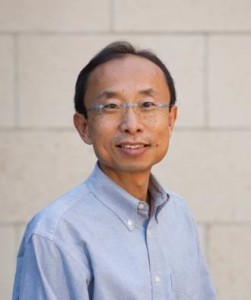 The following is a guest blog post by H.-S. Philip Wong from Stanford University.
The following is a guest blog post by H.-S. Philip Wong from Stanford University.
I just came back from the exciting Architecture 2030 Visioning Workshop, organized by Luis Ceze of the University of Washington and Thomas Wenisch of the University of Michigan, and partially sponsored by the Computing Community Consortium (CCC). I am not a computer architect. So one may wonder why I showed up at this workshop; maybe because it is in Seoul and I am hungry for Korean BBQ?
First, I must thank Tom and Luis for inviting me to give the keynote talk at the Workshop. It was a wonderful opportunity for a device technologist like myself to have conversations with computer architects. Device technology research for the past few decades have mostly been bottom-up: we invent or develop some fancy new devices and someone else (the researchers who work at the higher levels of the system stack) will figure out a way to use it. We came up with NAND flash, and you turned it into the key enabling technology for a range of new products starting from digital camera, portable music players, to mobile phones, tablets, and solid-state drive (SSD) for laptops and enterprise storage systems. We found a way to build lots of high-quality pixels using foundry CMOS technologies and you turned it into mobile phone cameras that create the huge volume of photos and video uploads every day. We double the transistor density every two years and you found a way to use it.
But, going forward, the world is going to be a bit different. It is going to be more top down, system driven. You start with something you want to do and ask: what technologies in the lower levels of the system stack can help me accomplish what I need to do? That’s because future systems are going to be a lot more heterogeneous, requiring a variety of technologies to work together, and these technologies must be closely coupled with each other, with little “fat” in between the levels of abstraction. So you really need to have a system perspective that cuts across the entire system stack. More needs to be exposed and revealed to the other levels of abstraction. And that’s why coming to the ISCA and the Architecture 2030 workshop is such an inspiring experience. Here, I learn from the experts the exciting opportunities they are working on, the problems that bother them, and from there, perhaps I can come up with device technology solutions that would make a difference. I was pleasantly surprised to find computer architects to be quite receptive to new device technologies, such as monolithic 3D integration, with memory and logic layers interconnected with nanometer-scale vias across multiple layers. The audience was interested in knowing what new logic switches and new memories will have to offer, even though they are not yet production-ready. It wasn’t like that years ago. Maybe they were just being polite. But, being an eternal optimist, I suspect there is genuine interest.
On a personal level, I was able to finally meet many of the people whose names I have read about in research papers or have heard of from my colleagues. The ISCA conference is absolutely enjoyable. The food was great. The excursion to the old palace was stimulating not only because of the history and architecture (here I am talking about the buildings!), but also because of the nice conversations I had with the tour group. On the way from the palace to the banquet by the river, a friend from Google and I debated the future of the semiconductor industry – that’s tasty appetizer for the mind before we were served the sumptuous dinner at the banquet.









